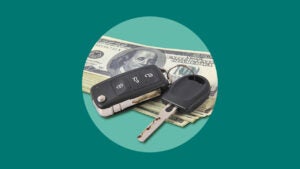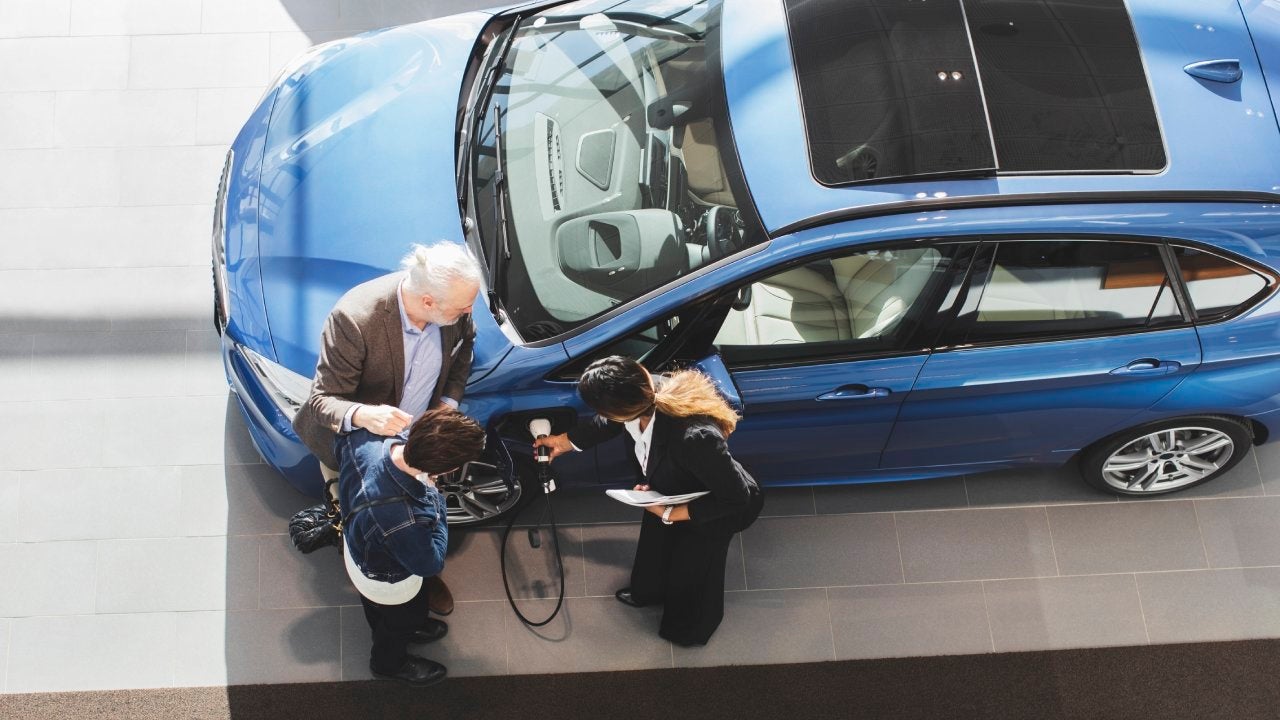The tax benefits of leasing vs. buying a car for your business

Key takeaways
- Tax deductions for business vehicles are numerous, whether you lease or buy.
- Leasing can be less expensive upfront and monthly, but leasing means you will never own the vehicle and build equity from the vehicle.
- In general, buying is a better move if you put a lot of miles on the vehicle, as leases can come with mileage limitations.
As a business owner, you need to put more thought into whether you buy or lease than the average driver. All the standard questions come into play, of course. But there’s more to consider, like what are the tax benefits of leasing a car vs. buying a car?
Is it better to lease or purchase a business vehicle?
First, start by deciding whether buying or leasing makes the most sense for your business. Ultimately, a vehicle purchase or lease is a big expense for your business. Look at the problem from all angles before committing.
- How much you drive: Lease contracts typically limit the number of miles the car can be driven to 10,000 or 15,000 miles per year. Once you exceed that limit, you may be penalized 10 to 30 cents per additional mile. Buying may be better if you drive a great deal for your business.
- Wear you’ll put on the car: Lease agreements also require that the vehicle be kept in good condition. There could be additional charges if there’s excess wear on your vehicle. If your industry beats cars up, consider buying.
- Perpetual monthly payments: If you continually lease one car after another, you will always have monthly car payments. But when you purchase a vehicle, you’ll eventually own the car outright.
On the upside, leasing gives you access to the newest car models with the latest technology features available. Leases allow you to access a new car every three years or so. In addition, because lease payments are generally less expensive than a traditional car loan, you may be able to afford a higher-end car.
Tax deductions for business vehicles
When you use a vehicle for business purposes, the IRS gives you two options for deducting associated expenses. You may use what’s known as the standard mileage rate deduction, or you can opt to use the actual expenses deduction.
You can swap from standard to actual expense from year to year for a purchased vehicle. However, you must stay with what you first pick when leasing.
Mileage deduction
The standard mileage approach allows you to claim miles driven for your business on your federal taxes.
The IRS announces the standard mileage rate that can be used to calculate the deductible cost of operating a car for business purposes every year.
How much can you write off on a leased vehicle? For 2024, the rate is 67 cents per mile driven for business purposes. This means if you drive 15,000 miles for your business, you can deduct a total of $10,050.
Sales tax
You can deduct state and local sales tax whether you buy or lease a vehicle. The way your business calculates it will differ. Sales tax is paid upfront for purchases and in monthly increments for leases.
If you choose to itemize your deductions, you can deduct sales tax instead of income tax. Your business must choose one or the other.
As with other deductions, there is an upper limit to the amount you can claim. For 2018 to 2025, that amount is $10,000.
Lease payments
You may deduct the cost of monthly lease payments by using the actual expense deduction on your federal tax returns.
The specific amount of the lease payment you can deduct depends on how much you drive the car exclusively for business. For example, imagine your monthly lease payment is $400 and you use the vehicle 50 percent of the time for business. You can deduct $200 per month as an expense.
These benefits are only available if you sign on to a standard lease. You cannot claim this federal tax deduction if you take on a lease-to-own contract.
Car loan interest
Self-employed people and business owners can deduct interest on auto loans from their taxes. You must record every business trip, odometer reading and car loan payment to verify the amount of interest you pay.
Like other deductions, car loan interest can only be included in your taxes if you opt for an actual expense deduction.
Depreciation
Only purchased vehicles qualify for the depreciation deduction — and only when the actual expense deduction is used. The method of determining how much your car depreciated over the year is usually Modified Accelerated Cost Recovery System (MACRS).
Like the mileage deduction, the depreciation deduction changes every year.
For the 2024 tax year, the maximum depreciation you could deduct is $12,400 for standard depreciation. If you choose the special depreciation allowance, it is up to $20,400. It varies widely based on when the vehicle was placed in service.
Review Publication 946 by the IRS to learn about the ways you can depreciate your vehicles and other property as a business owner. This publication has not yet been updated to reflect the 2024 tax year limits.
Maintenance and operating expenses
Actual expense rules also include the deduction of other expenses for your leased or purchased vehicle, including:
- Gas
- Oil changes.
- Vehicle repairs.
- Tire purchases.
If your vehicle needs extensive maintenance or repairs because of business-related use, keep a careful record of it. This way, you’ll know exactly how much you spent — and how much your business can save during tax season.
Expense differences between leased and purchased vehicles for businesses
The up-front and monthly costs for leasing a vehicle of the same make, model and year are often less than when buying it. Those savings can be redirected to other business needs and investments.
But, leases have to end eventually — and your business is left without equity. With purchasing, you will someday own the vehicle and could sell it to recoup some funds.
Leasing costs can also include early termination expenses if you need to end the contract early and excess mileage fees.
Both options come with interest and other fees. The choice depends on your business’s cash flow and how your business will need to use the vehicle.
The bottom line
As with many aspects of running your business, there’s no one-size-fits-all answer to whether leasing or buying has more tax advantages. Before investing in a car for your business, consider:
- How the vehicle will be used.
- Whether you can afford the upfront and long-term costs.
- The potential added fees.
- The tax benefits of leasing a car vs buying a car for business.
You can use the auto lease calculator to see if it makes financial sense for you to lease. Alternatively, you can take a look at current auto loan rates.
You may also like

What is an equipment loan and how does it work?

Pros and cons of leasing vs. buying a car





